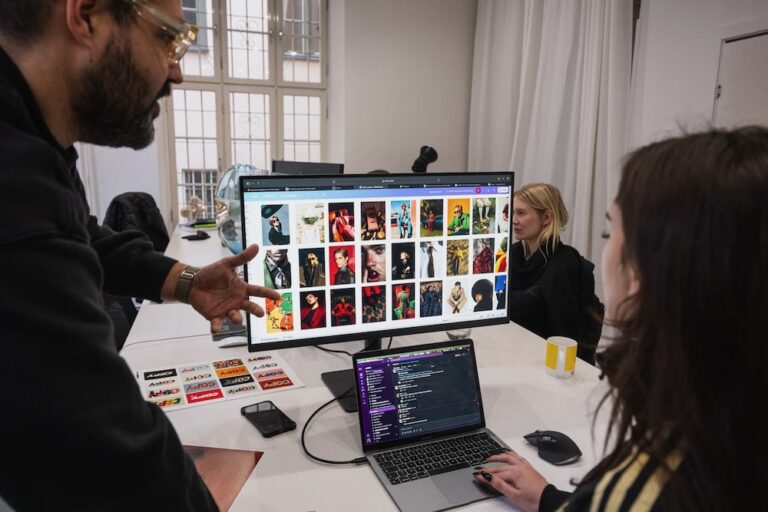(IAPA/IFEX) – The following is a 30 December 2004 IAPA press release: Year-End Message President of the Inter American Press Association Alejandro Miró Quesada C., El Comercio, Lima, Peru December 30, 2004 This year ends with important progress in the area of press freedom, but at the same time with disturbing setbacks around the hemisphere. […]
(IAPA/IFEX) – The following is a 30 December 2004 IAPA press release:
Year-End Message
President of the Inter American Press Association
Alejandro Miró Quesada C., El Comercio, Lima, Peru
December 30, 2004
This year ends with important progress in the area of press freedom, but at the same time with disturbing setbacks around the hemisphere. Our cautious optimism is based on the fact that only a handful of independent journalists in Cuba were freed from prison and violence resulted in the death of 16 journalists, including that of Francisco J. Ortiz Franco, an IAPA collaborator and posthumous recipient of the IAPA Grand Prize for Freedom of the Press 2004.
Overall, this year there was greater awareness of freedom of expression and of the press in the Americas. This is evident in the adoption of access to information laws in the Dominican Republic and Ecuador, decisions made by the Inter-American Court of Human Rights, and trends towards the decriminalization of libel and slander, such as in El Salvador.
However, on the other hand, in several countries there were legal decisions that altered the free flow of information and news. In Venezuela, the government continues to create an official regulatory framework that, through censorship and prior censorship, seeks to suffocate the media and the work of journalists and deny the public its right to information. Limits on the dissemination of information set out in the Law on Content and reforms to the Penal Code, that would create more penalties and fines against journalists, are part of an official strategy to protect political leaders and make them immune to criticism.
Among the most frightening court decisions have been those made by judges in the United States that have sought the arrest and imprisonment of journalists who refuse to reveal their sources of information. In Brazil, Costa Rica, Paraguay, Peru, Uruguay, and other countries, lawsuits and intimidating court sentences have led to self-censorship. In Argentina and Mexico, the governments use state advertising to reward and punish the media, and in Guatemala and Honduras laws have been passed that limit the media’s ability to cover political campaigns.
On a positive note, we are pleased that Raul Rivero can enjoy freedom with his family, as can the following Cuban journalists who were recently released: Oscar Espinosa Chepe, Edel José García, Jorge Olivera Castillo, Carmelo Díaz Fernández, Carlos Alberto Domínguez, and Manuel Vázquez Portal. We will continue to press for the release of the other 26 Cuban journalists still in prison.
We would like to point to the rulings issued by the Inter-American Court of Human Rights on the cases of Costa Rican journalist Mauricio Herrera and Paraguayan politician Ricardo Canese, which comprise important legal precedents for the defense of freedom of expression and of the press in the Americas.
In Brazil, we have noted some progress, including a Judicial Branch reform that will allow crimes against humanity, including the murder of journalists, to fall under federal jurisdiction, and the Congress’s shelving of a bill to create a Federal Journalism Council.
Situations like these call for the IAPA to be constantly vigilant. In the coming year, international IAPA delegations will visit several nations around the hemisphere to demand greater respect for press freedom. In addition to Argentina, we will organize special missions, through our Chapultepec Project, to countries such as Bolivia, Colombia, Chile, United States and Haiti, where we will meet with legislators, judges and journalists to learn, analyze and develop a strategy to guarantee the public’s right to information.
During international forums in Switzerland and Tunisia, we will demand that distribution of information on the Internet be allowed without censorship. We will continue investigating crimes against journalists and we will defend those cases before the Inter-American Commission on Human Rights. We will continue training journalists so that they can report with improved quality and greater editorial independence. We will broaden our public education campaign in which citizens directly petition governments to respect journalists; and we will also continue to provide training to journalists that work in hostile areas.
We are also aware that the mission of the press is sometimes threatened by those media outlets that abuse the rights bestowed upon them by society, which thus leads to a decrease in credibility. However, it is also true that we should be careful in dealing with the issue of the responsibility of the media since governments tend to use these weaknesses to limit the press. Professional ethics should not imposed on the media or journalists, but the media and journalists themselves should follow the principles that guide the profession. We are committed to this.
As an organization of journalists, we do not have the power to change laws or determine conduct, but we can remain vigilant and encourage certain principles so that respect for freedom of expression and of the press is a right of all citizens. This is our fight and will continue to be our aim in 2005.


